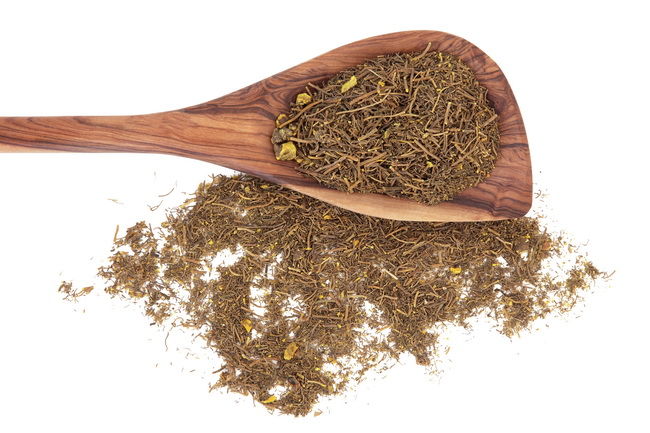- Make It Yourself Lavender Heart-Shaped Bath Bombs!
- 20 Things You Never Knew About “Down There”
- 12 Best Foods For Those Suffering From Arthritis Pain
- 12 Personal Hygiene Mistakes Almost Everyone Makes (Mom Never Told You About #4!)
- 15 Medicinal Plants And Herbs From The Cherokee People
- 12 Mind-Blowing Benefits Of Drinking Coconut Water During Pregnancy
- 12 Outstanding Winter Foods That Won’t Fatten You Up Like A Christmas Turkey
12 Natural Ways to Treat a Staph Infection (#11 is Crazy!)

Photo credit: bigstock.com
10. Goldenseal
This ancient herb has been used by Native Americans to fight infections for hundreds of years. Science backs up claims that this herb has antiseptic and antibacterial compounds that can disinfect and heal wounds. Make a double strength goldenseal tea and apply this to the affected area using a clean cotton ball. Repeat two or three times each day to fight the infection and speed healing.
11. Manuka Honey
Well, this is a sweet way to deal with an infection! Although all types of honey contain antibacterial compounds, Manuka honey, which is a certain type of honey from New Zealand, is head and shoulders above the rest. One study, published in the Journal of Applied Microbiology in 2002, showed that the powerful phytochemicals in Manuka honey not only killed staph bacteria, but it prevented the further growth of this source of infection, inhibiting it from spreading. You should be able to find Manuka honey in your local health food store or buy it online. Apply Manuka honey directly to the affected area and allow it to work for two or three hours before washing it off. Repeat two or three times each day for 7 to 10 days. Of course, you can always add some of this super delish honey to your herbal teas or oatmeal for a boost of immune strengthening power.
SEE ALSO: 12 Natural Antibiotics: No Prescription Required!
12. Basil
Basil also has strong immune boosting compounds as well as containing antimicrobial properties. If you have fresh basil, you can apply the juice from the leaves directly to the affected area or apply basil oil to the infected areas. Allow to work for two hours, and then wash off and repeat two or three times each day. You can also drink basil tea two or three times each day to help fight the infection from the inside out and improve your immune system at the same time.
Extra Tips
- Avoid touching the affected areas directly as this can spread the bacteria as well as delay the healing process
- Practice a high level of hygiene to prevent the bacteria from spreading
- Always wash your hands before eating
- Keep uninfected wounds covered
- Avoid sharing personal items such as towels to avoid spreading the infection
- Wash clothing, towels, and bedding in hot water and dry in direct sunlight to kill any bacteria that might be sticking to these items
References:
































